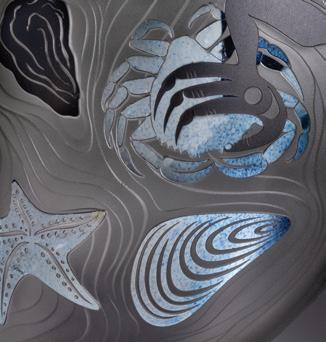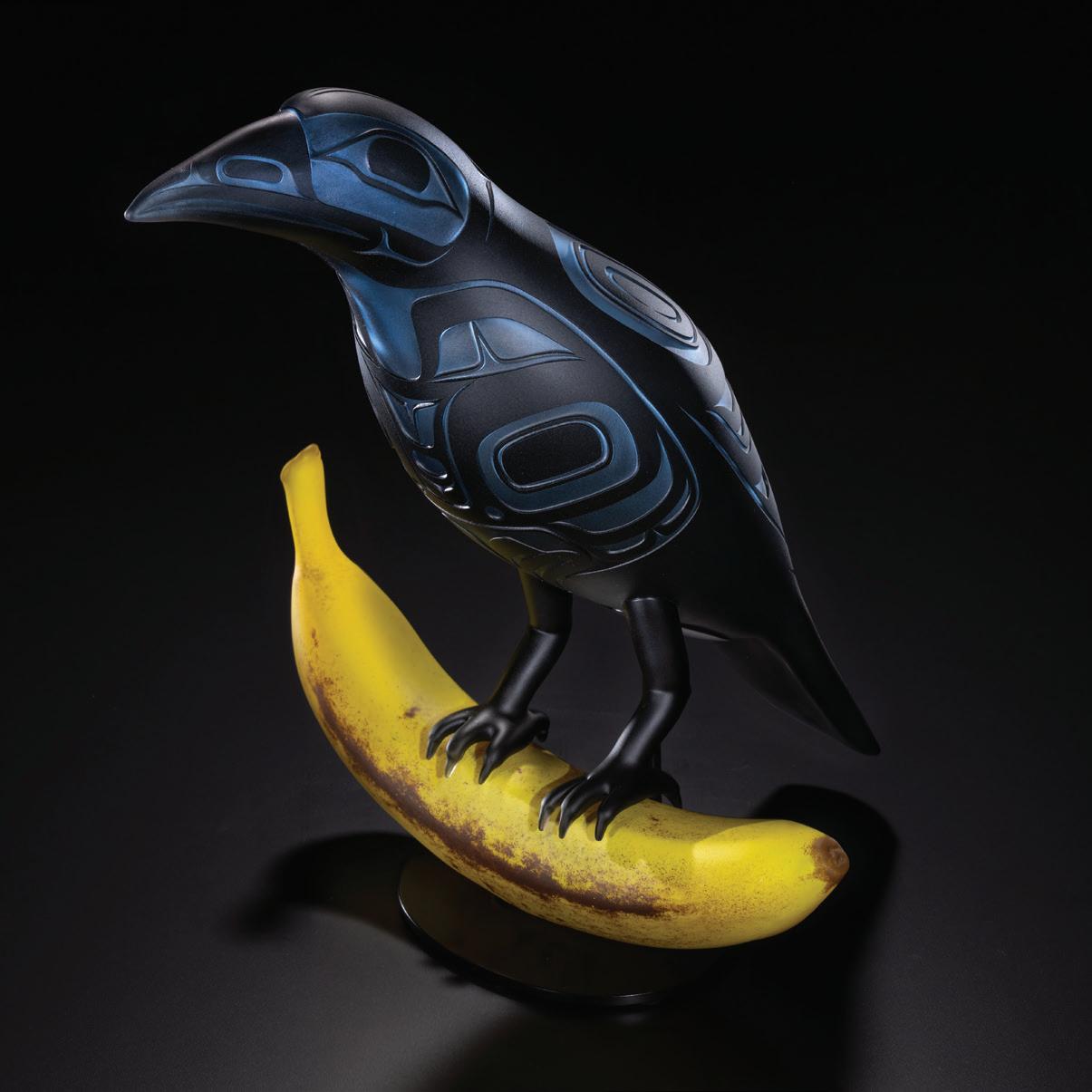
The Banana Republic of Raven
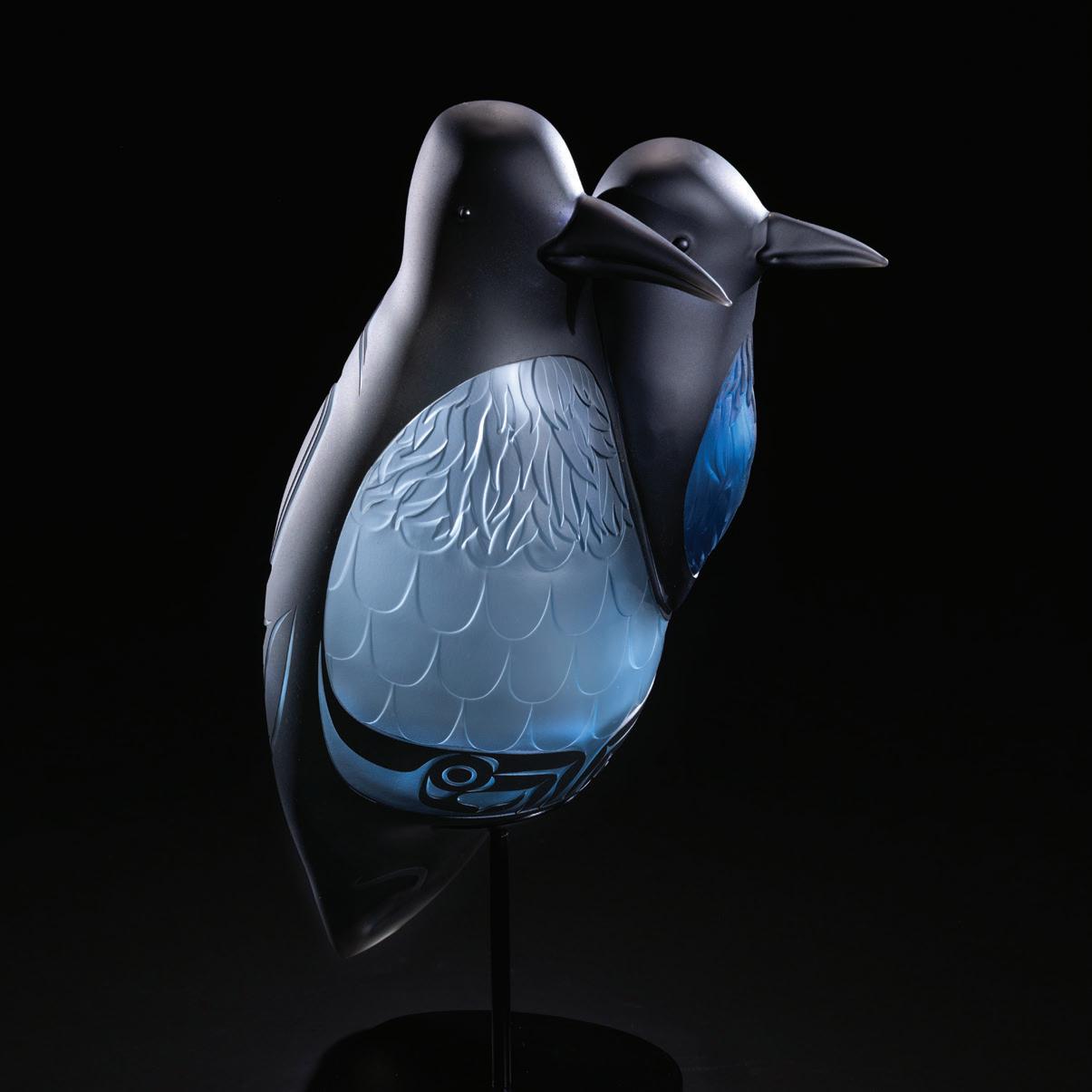
PRESTON SINGLETARY
The third installment of Raven stories by Preston Singletary and Garth Stein. Photography by Russell Johnson.
The Banana Republic of Raven New Takes on Old Stories
The whole world had gone bananas as far as Raven could tell. He was tempted to go back to sleep and give up on the world entirely. But then he remembered he already was asleep.
“Not really,” he said to himself. “More like a waking dream.”
“There was a time when sleep meant sleep,” he replied to himself. “And awake meant awake.”
“And there was a time when food meant food,” he noted pointedly, for sometimes Raven was of two minds and it was good to remind himself of things. “I’ll bet you’re hungry!”
“We could eat,” he said severally. “We could definitely eat.”
And so Raven went in search of food, for while he knew his real mission was to set the world straight, he couldn’t let that distract him from eating properly. One must take care of one’s physical plant. What good is a phone call if you’re unable to speak?
On the Cover
World Gone Bananas, blown and sand-carved glass, 19" h x 15.25" w x 17" d
This world may be broken. It may be absurd. It may be unsalvageable. But Raven can’t stop believing it’s worth saving.
He walked down to the beach, always a hopeful place to find food, and when he arrived, he noted that the tide was very far out much farther than usual. Rather than dwelling upon the reason(s) why the tide was exceptionally low, he chose to avail himself of the clams and mussels and urchins which were plentiful on the exposed rocks, as well as the crabs hiding in the pools beneath the rocks. As he sat back on the moist sand tossing tender morsels of sea bounty down his gullet with nary a chew, and thus, for a moment at least, abating his insatiable appetite, he was taken by surprise by the tide, which came in suddenly and with great force until he was soon up to his neck in the ocean.
“Ga! What have we here?” he wondered as he waded toward the shore. But before he reached the beachhead, the water around his ankles sucked at him with great force and pulled him back into the bay as the tide suddenly and miraculously withdrew.
“Perhaps this is all a bad dream,” he thought after pulling himself free from the clinging tide and noting the many new clams and mussels and urchins on the exposed beach, as if the lunch table had been restocked. “It’s like a bottomless all-you-can-eat buffet!” he said and bent over to grab an urchin, when suddenly the tide was upon him headed in instead of out tumbling Raven once again.
“I believe I’ve had enough of this,”Raven muttered grimly, shaking the sand from his crevices.
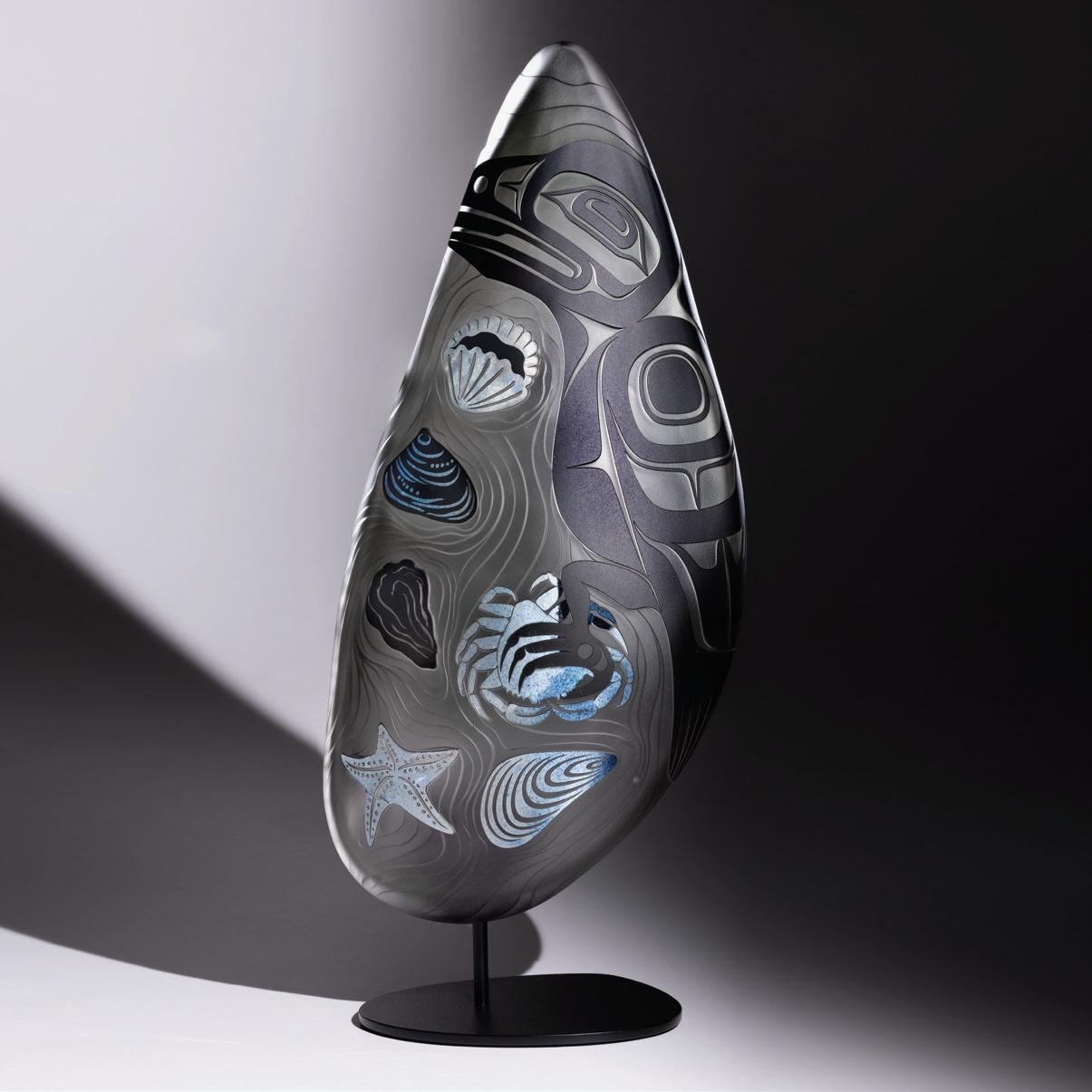
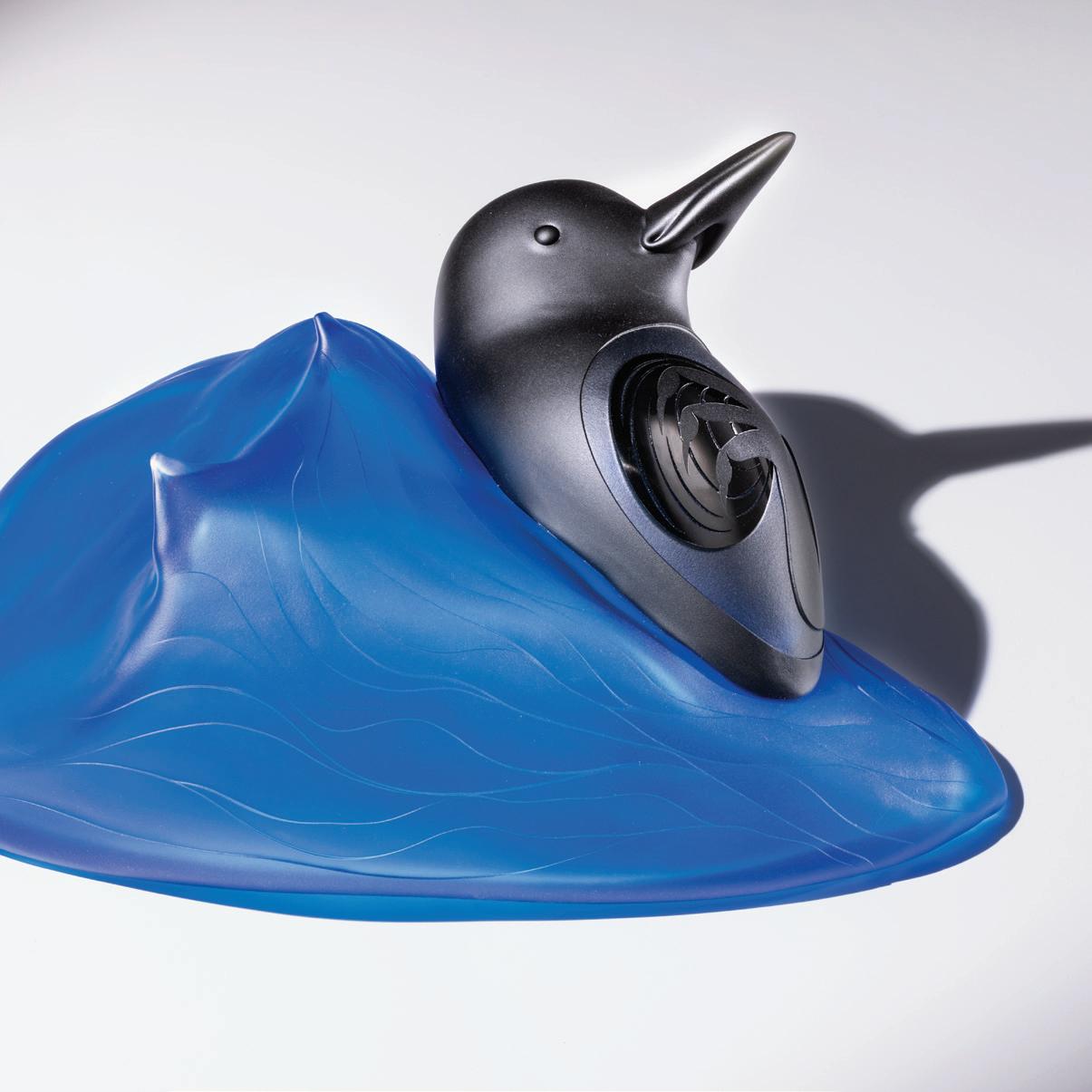
He looked for the cause of this chaos, for every effect has a cause, except for the very First Effect, which, of course, still had a cause, though one of a divine and therefore inexplicable nature. He looked around until he saw an old woman pushing the tide in and out randomly and with no regard for the schedule.
“Look here, Old Woman,” called Raven. “Are you the keeper of the tide?”
“I am, truly,” the Old Woman muttered, though she seemed distracted.
“It is a very important job,” said Raven, “and not one to be taken lightly.”
“Never,” said she.
“Well, then, how now?” he asked, as the tide scurried past him, sucking at his ankles as it went.
“I’m sorry, did you say something?” asked the Old Woman.
“I said, even in the most chaotic of worlds, there must be some order!” cried Raven. “We must have some
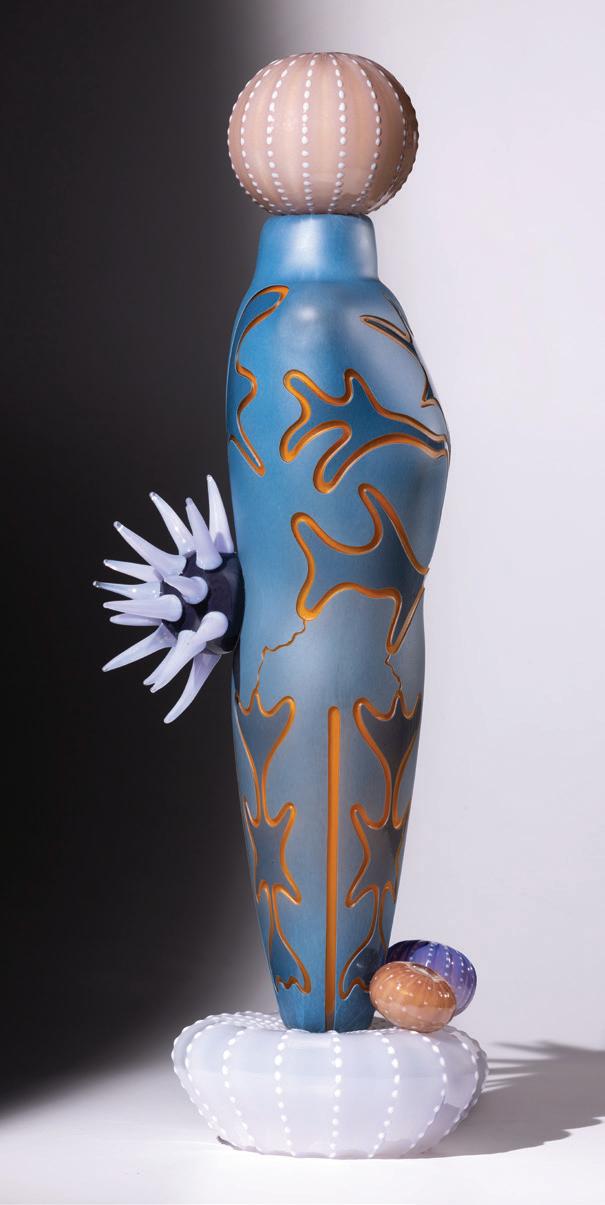
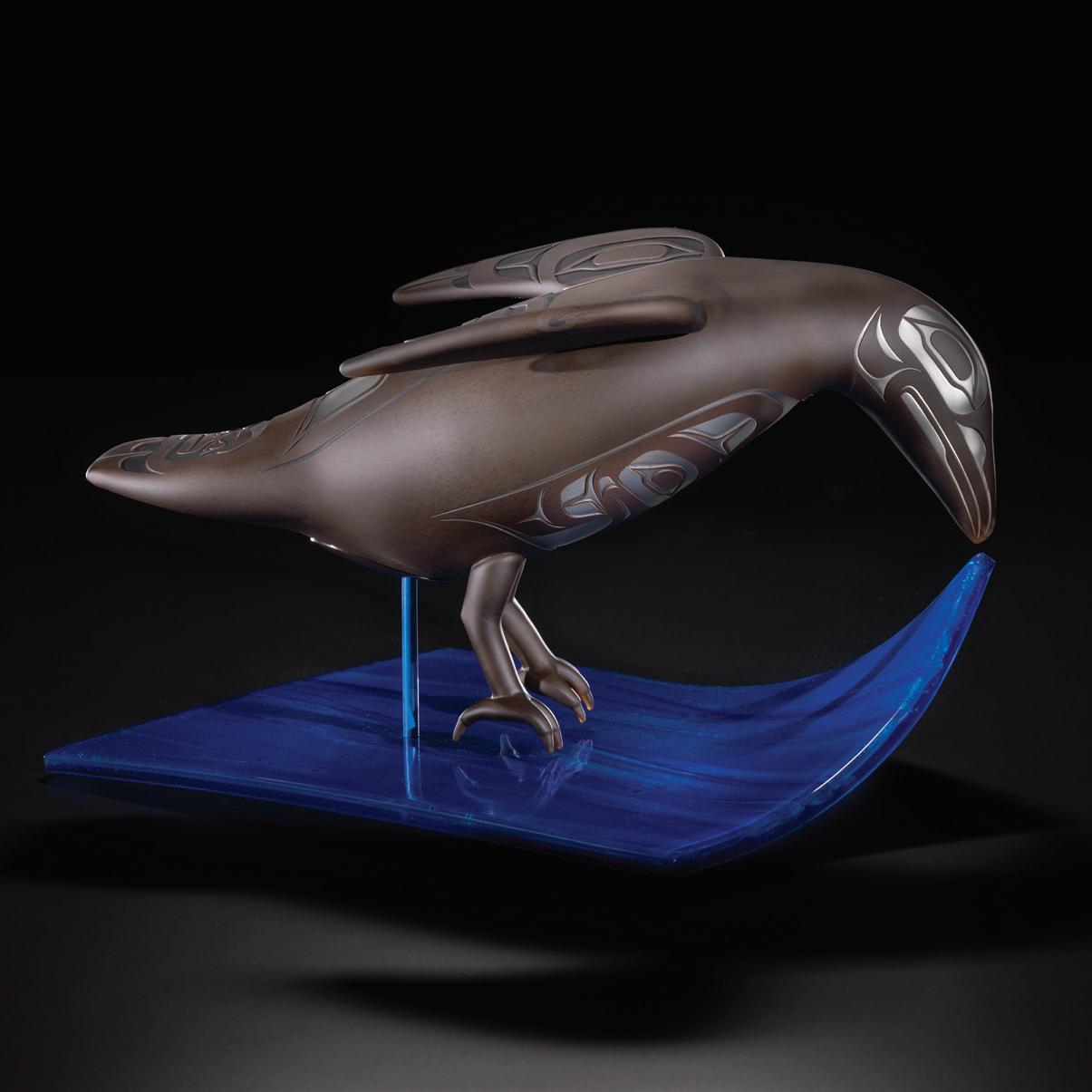
structure within which to operate, otherwise chaos will have no meaning! If everything is chaotic, then nothing is!”
“I’m distracted,” the Old Woman admitted, and that tide came in again, tumbling Raven yet again.
“See here,” Raven said, knocking his head against a rock to dislodge the sand in his ear hole. “You were selected for this job specifically because you are not the distractable type. Certain jobs need certain personalities. The sun, for instance, can’t be distracted. The moon, same. The tides ... If you were the distractable type, you would have been put in charge of the squirrels. Squirrels are the quintessence of distraction. Hummingbirds as well. But you were not put in charge of those things.”
“I was thinking, if I could get all my tides done now, I could take a vacation,” said the Old Woman. “I’ve been doing this job for an eternity.”
“It only feels like an eternity,” Raven said. “You’ve been doing it since the beginning of time, which is not nearly as long ago as eternity.”
“When do I get a vacation?”
“Do not think about yourself and your unrestrained desires, Old Woman!” Raven cried, and with that, he picked up a spiny urchin from the sea floor and poked the woman’s bottom with a quill.
“Ouch!” she cried.
“Twice a day every day: in,” said Raven. “Twice a day every day: out. That is your raison d’être!”
“What about my vacation to Hedonism II? I gave them a non-refundable deposit.”
“When the moon goes to Hedonism II, you can go,” replied Raven. “When the sun goes to Hedonism II, you can go. Otherwise, twice a day in, twice a day out. Capeesh?”
He poked her bottom again with the urchin quill.
“Ouch,” she said. “Okay, okay! I will do it!”
And so the tides were fixed and Raven could sleep well at night.
The very next day, the tides were broken again, and Raven awoke in a pool of water. “Gak!” he cried and flew straight up into the air. “Old Woman!”
He made his way down to the beach ready to give the Old Woman a piece of his mind, but when he arrived, he found her pacing along the beach fretfully, poking her own bottom with a sea urchin.
“Ouch!” she said. “Ouch!”
“What on earth?” Raven said.
“I didn’t do it!” Old Woman cried. “Ouch! I’m doing what you told me to do, and yet ... and yet ... look at this water! It’s everywhere! Ouch!”
Raven considered the issue. Certainly, it wasn’t the old woman’s fault. Something else was at work. “Fret not, Old Woman,” he said. “I will discover the source of this problem and remedy the matter posthaste!” He pulled out his notebook and wrote in block letters: “HISTORICALLY HIGH TIDES AFFECTING FOOD SUPPLY OF RAVENS EVERYWHERE. REMEDY POSTHASTE.”
And so he set about to do it.
Now finding the solution to a problem isn’t nearly as difficult as finding the problem itself, Raven thought as he flew through the forest looking for solutions. Further, finding the problem isn’t nearly as difficult as realizing that there is a problem to begin with, for we all are steeped in our own ignorance, and we like our ignorance like we like our Ravens: strong, dark and bitter.
“I appreciate your wordsmithery,” Raven said to himself.
“Thank you,” he replied.
He soared in a gentle arc toward the ocean, for in the back of his mind he associated the ocean with food, and he was, generally speaking, nearly always hungry. Food acquisition and development was at the forefront of his mind nearly always, generally speaking. And there was the ocean, the great heaving bosom of the earth laid out before him, the great nourishing mother calling to him, singing a siren’s song, begging him to take what she has to offer, take all of me, let me feed you from my eternal supply. He heard that call and he swooped down toward the watery cornucopia, when he noticed a pod of Killer Whales making a parade of some sort. They were swimming at the surface in a formation of some degree, their heads held aloft proudly, and on each of their heads was a dead Salmon.
Raven flew closer to investigate.
“What is it you are about, you Killer Whales, parading in the ocean with dead fish on your heads?” Raven asked.


“These are our bonnets,” replied Mother Killer Whale. “We are having an Easter parade,” said she.
“I am baffled entirely,” said Raven, thinking once again of a world filled with bananas. “You are like a band of Dadaist painters in Berlin! Those are not bonnets you wear on your heads but dead fish, and Easter parades are meant to take place on the Easter holiday, which this is not. Have you found a sunken crate of absinthe down there on the ocean floor? Perhaps your microdosing accidentally became macrodosing?”
“They are bonnets,” Mother Killer Whale said indignantly. “And this is an Easter parade. You can join our parade if you like, or you can take your dark, bitter cynicism elsewhere, Raven. This is not a problem for you to solve. In fact, it is not a problem at all!”
“SOLUTIONS ARE EVERYWHERE,” Raven wrote in his journal. “PROBLEMS ARE MORE DIFFICULT TO FIND.”
He left them, then, those Killer Whales cheering on the resurrection while wearing bonnets of dead salmon. He went to the beach and lifted the edge of the water and went underneath, down to Killer Whale Town to see if there was some mischief he could scare up, for despite the parade of salmon-wearing Killer Whales, things were pretty dull, and when things got dull, Raven remembered his mission to save the world, though the World was neither asking for nor willing to be saved.
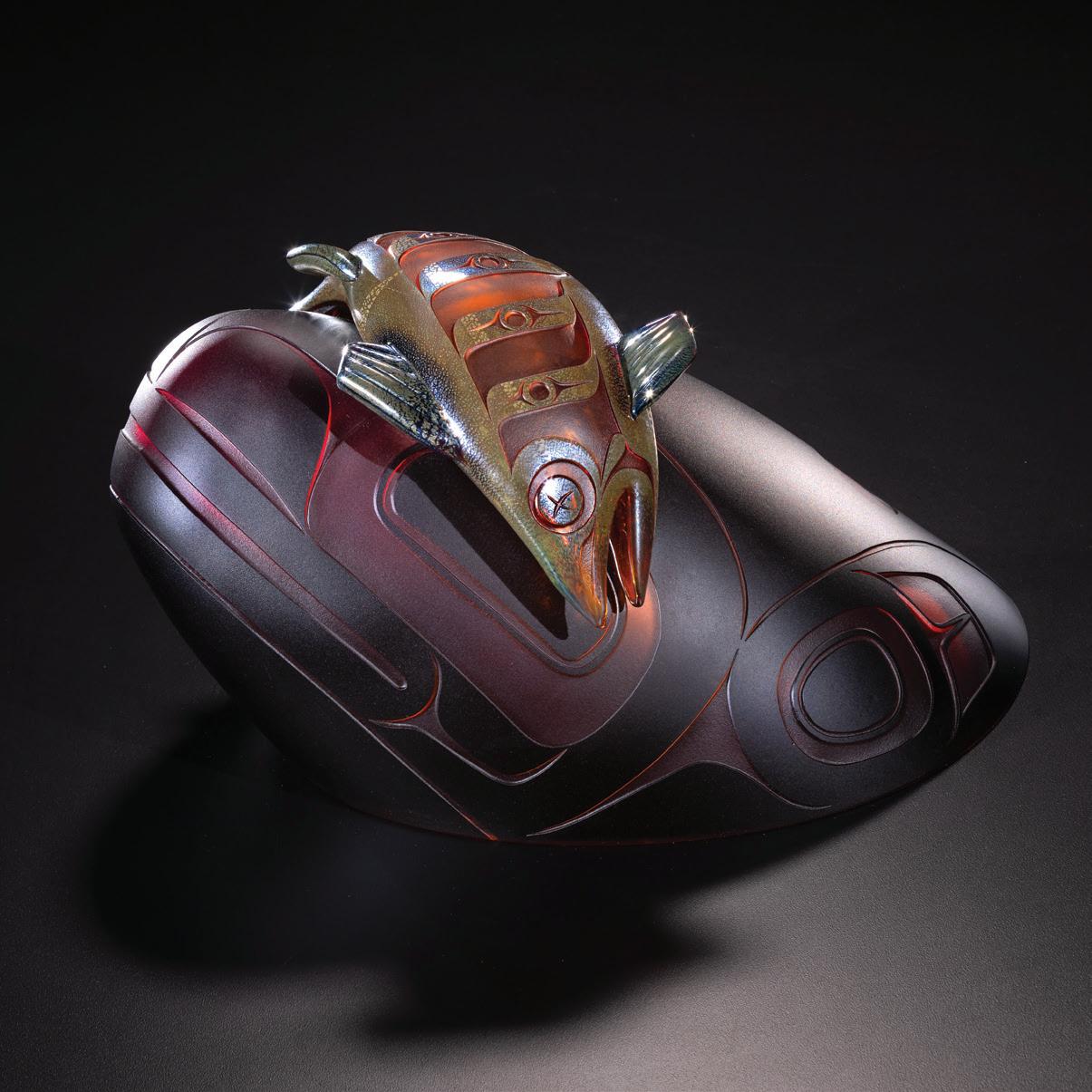
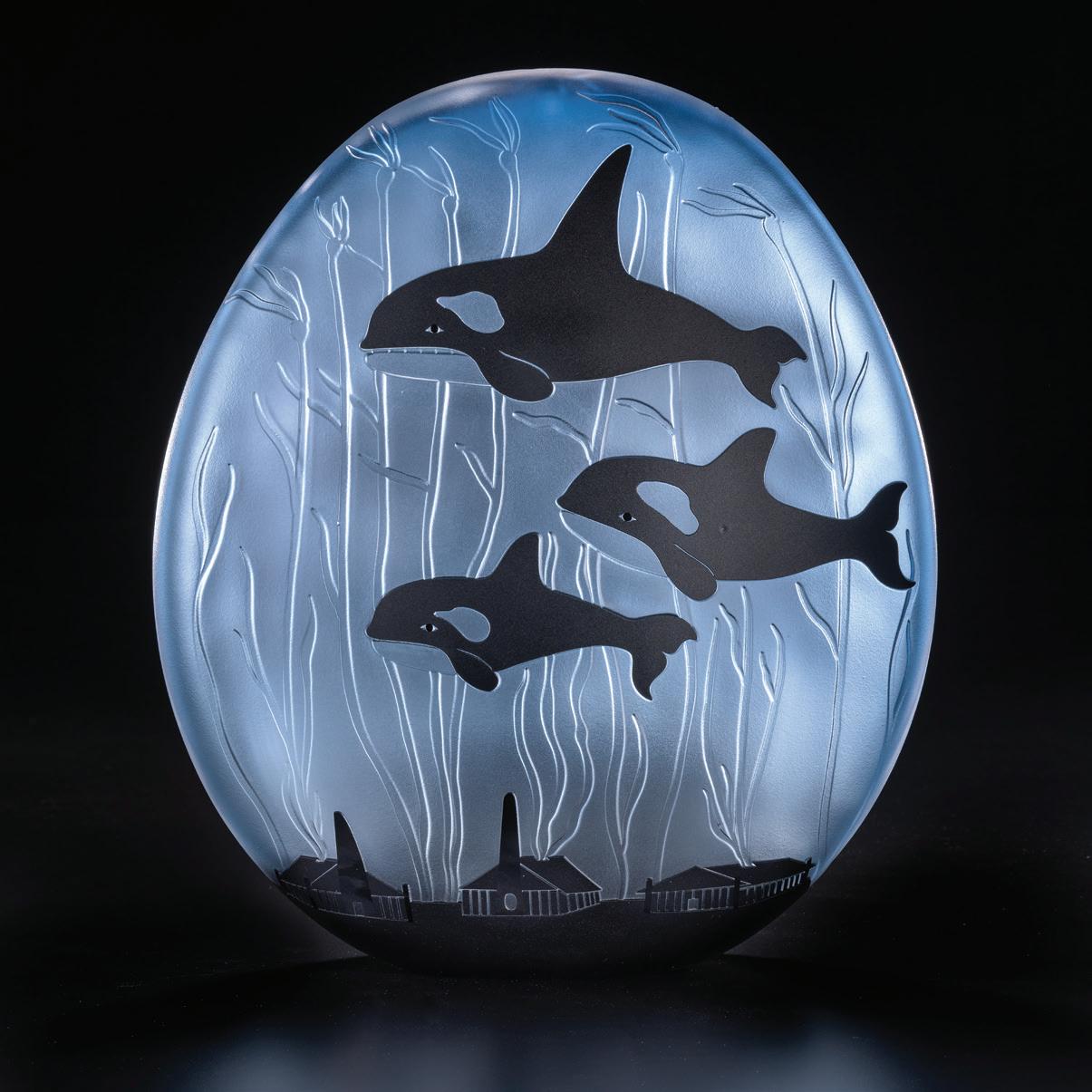
When Raven arrived in Killer Whale Town, he saw that all the Killer Whales were gathered beneath a large tent. They were having a meeting of some kind.
Raven snuck into the back of the revival tent and listened to the orator, a Killer Whale Chief: “The earth does not belong to man, man belongs to the earth,” Killer Whale Chief exhorted. “All things are connected like the blood that unites us all. Man did not weave the web of life; he is merely a strand in it. Whatever he does to the web, he does to himself!”
The Killer Whales gathered in the tent cheered and blew air from their spout holes.
“They want to buy the ocean from us,” the Killer Whale Chief continued. “But how can you sell the ocean or the sky? How to do you sell the land? If we do not own the freshness of the air and the sparkle of the water, how can humans buy and sell these things?”
The gathered whales thumped the floor of the ocean with their great tails.
“They have created great garbage patches of plastic. They are killing our turtles, our seals, our fish, our birds, and our beloved jellies! They are strangling our food supply. Soon, the only food in the ocean fit to eat will be the plastic itself. That is why we will attack their sailboats!”
More thumping and spouting from the crowd. A cheer went up among the whales.
“Excuse me,” said Raven. “This is all very exciting! What is it we’re trying to do? And why?”
“We are striking back at the men who are turning our oceans into their garbage dumps. I’m talking about the Great Pacific Garbage Patches, both western and eastern, which are killing our
food supply and rendering travel in the ocean treacherous for us. Have you ever tried to breathe with a Coca-Cola bottle jammed in your air hole?”
“Hmm,” Raven considered the question. “I’ll say no.”
“It’s difficult if not impossible,” said Killer Whale Chief. “And there’s plenty more! Have you heard about the genetically modified Salmon they’re foisting upon us? Egad!”
“I have heard about that,” said Raven. “So you’re suggesting that all the problems in the world can be traced back to Man, himself. You’re suggesting that Man’s selfishness and corruption, coupled with his ignorance and greed, has led to all the world’s problems. Without Man, the world would be just fine! That is what you’re suggesting, isn’t it?”
Killer Whale Chief looked down his long nose at Raven.
“Yes,” he said.
“Well,” Raven said, “if word of this got out, it would cause widespread panic! People would riot in the streets! If they
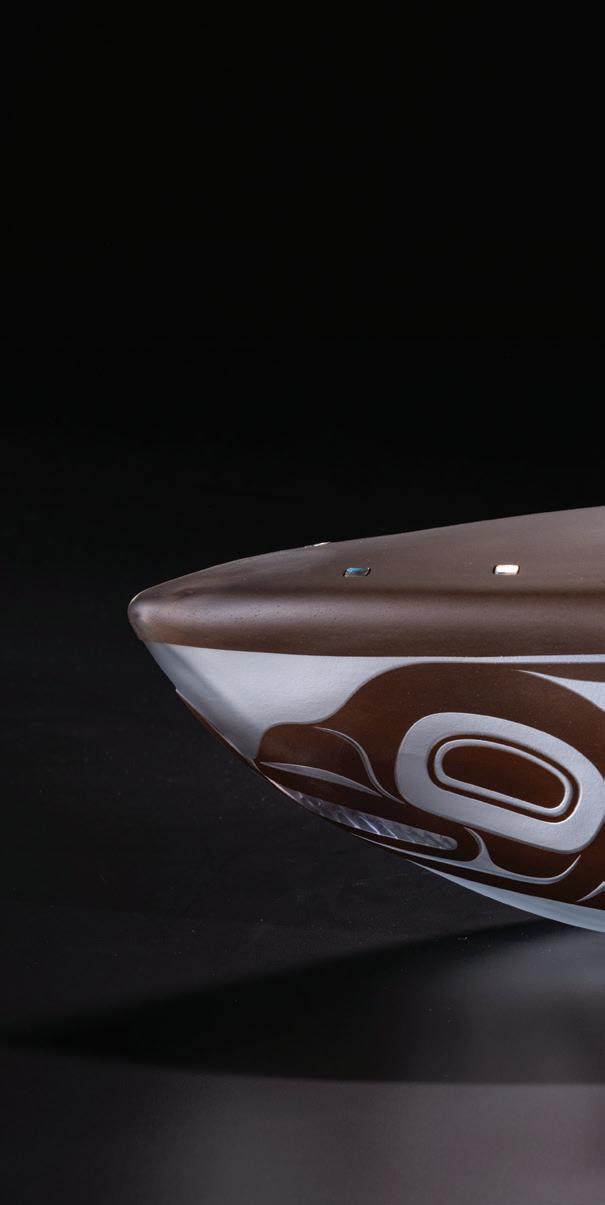

knew the truth, they would pull out their eyes and apologize!”
“We are going to sink their sailboats as a form of low-violence protest!” said Killer Whale Chief.
“Interesting tactic,” said Raven. “I suppose you’re going after sailboats because they are soft targets and relatively easy to sink?”
“Not at all.”
“Surely, it would be difficult to sink a supertanker!” cried Raven.
“We’re going after the sailboats because we want the Media on our side,” said Killer Whale Chief. “If we sink a supertanker, they won’t believe we did it. They will blame Somalian pirates! But when we sink a sailboat, they’ll know it’s us!”
“And then you’ll eat the survivors,” Raven added hopefully.
“We will not eat the survivors,” said Killer Whale Chief.
“You don’t have to eat them all,” said Raven. “But you should eat some of them. In fact, I’m getting a bit hungry and would love a bite of food!”
“We would love to eat the survivors, but we will not eat them!” cried Killer Whale Chief. “We cannot eat them! We’re not allowed. That’s part of the mandate given to us by our Creator: never harm a human being!”
“Oh, that’s right,” said Raven. “That’s in the Old Stories. After you ate your Creator’s enemies, he banned you from eating any more people, which was rather self-serving of him. I remember ”
“It’s essentially the equivalent of creating a species of eight-foot-tall humans and telling them they aren’t allowed to dunk the basketball. We’re Killer Whales who can’t kill! What’s the point of that? Why not call us Pacifist Whales?”
“Good point,” said Raven.
“We found a workaround, though. Sharks!”
“Sharks?”
“Yes. We can’t eat people, but we can discombobulate them. And we can sink their sailboats, because they’re so slow. And then, as the people are bobbing in the ocean, the sharks can eat them. We’re applying for a name change. Instead of calling them People, we want to call them
Chickens of the Sea. Everyone loves chicken!”
“Nuggets!” cried Raven.
“We’re applying for a name change for ourselves, too,” said Killer Whale Chief. “Instead of Killer Whales, we want to be called Helper Whales. It’s ironical, because we’ll be helping the people to be eaten! Haha! Sharks will keep their name because everyone’s already afraid of Sharks. They don’t need any extra help.”
“Sharks!” Raven said. “Boy, you Killer Whales know how to party!”
“At the very least, we’ll get a story out of it,” said the Killer Whale Chief.
Raven left the Killer Whales to their planning, and as he swam away, he considered the take-aways from his conversation, for Killer Whales are famous for their thought-provoking conversations. His first take-away: Low-violent protests. What a concept! What society doesn’t benefit from a little bone-breaking? A few broken teeth ... His second take-away: “At least we’ll get a story out of it!” How true! That which does not kill you, makes a good story! Haha! Gak! And Raven flew straight up into the air.
It was later along his journey under the ocean that Raven ran into the Sharks, who seemed quite friendly despite their reputation as terrorists of the sea.
“Hail, fellows! Well met!” Raven called to them. “What are you doing there that’s making all those sparks? It’s like fireworks on the Fourth of July!”
The sharks turned their lazy black eyes toward Raven, but they did not stop what they were doing, which was dragging their long pointy teeth along the rocks near the shore, causing a great deal of sparks!
“What are you doing?” asked Raven. “And why are you doing it?”
“We’re sharpening our teeth,” said the sharks. “All the better to eat you!”
“Haha!” cried Raven, for he knew the sharks would never eat him. “If you bite me, all the teeth will break out of your head! Who, then, is on the menu tonight, fellows?”
“Sailors!” Shark replied. “Rich, fat sailors with expensive watches!”
“Ah,” said Raven. “Sailboat charters off the coast of Gibraltar, by chance?”
“Bingo!” Shark cried, cackling maniacally.
“I see,” Raven said. “That’s what could go wrong! Friend Shark, tell me, is this a scare tactic? A bluff? An attention-grabbing celebrity-style stunt? Tell me true!”
“Oh, no,” said Shark. “Man-flesh is on the menu tonight. Killer Whale has lifted all catch limits, the season for People eating is w-i-i-i-de open!”
Now Raven had no special place in his heart for People. In fact, for the most part he thought they were dull and a bit vain, staring at their own reflections whenever they got the chance. But still, he had a soft spot in his heart for the poor, stupid creatures. It was mostly his fault, anyway,
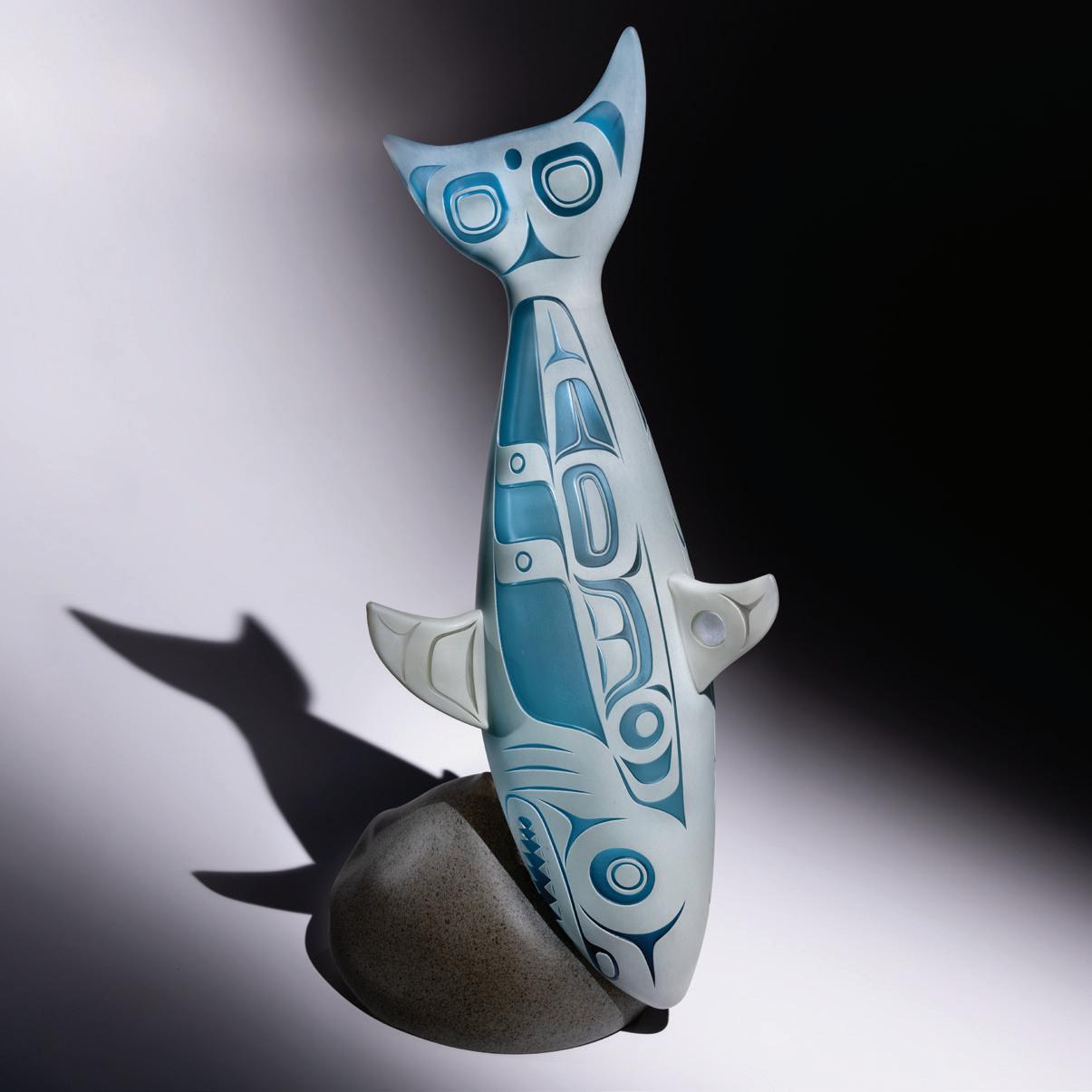
making them out of leaves like he had. He should have used stone. He knew that. Oh, well, Raven shrugged and sighed. Evan old Blue Eyes had a few regrets ...
Raven said to Shark: “On a scale of one to ten, where one is the least possible likely and ten is the most possible likely, how likely are you to actually eat the people knocked into the water by Killer Whale attacks?”
“Ninety-nine,” Shark replied.
“Ninety-nine out of ten?”
“Ninety-nine. And one arm,” Shark said. “We’ll leave the one-armed person living as a warning to the others.”
“Riveting,” Raven said. “And brutally effective. One last question: which came first, the chicken or the egg? Conceptually speaking. Not any one particular chicken, nor any one particular egg.”
“The egg necessitates the chicken,” Shark replied. “Without chickens, there would be no eggs.”
“I like your thinking,” Raven said. “I guess this is pretty serious.”
“But it doesn’t explain the high tides,” Shark said.
Raven considered this new information. Shark was correct: the origin of life on earth had nothing to do with the tides. Or did it?
“You are wiser than you look, friend Shark,” said Raven. “Enjoy your meal.”
He flew off, the screams of foundering Breitling-adorned sailors diminishing as Raven got further and further away. And anyway, he couldn’t be bothered with every little shark attack. And how much could the sharks eat, realistically? And wouldn’t people simply stay away from sailboats at some point?
“As stupid as they are,” Raven said to himself, “surely they aren’t that stupid.”
“Stupid is as stupid does,” Raven replied to himself.
“But that’s "
“As stupid as a box of chocolates?” he asked.
“I feel like you know exactly what I’m going to think before I think it,” he told himself.
Ever on the lookout for solutions, as well as problems needing solutions and solutions needing problems, Raven continued along until he saw a cozy cohort of fishing boats gathered around a floating ring of some kind. Raven flew closer. Indeed, he saw a ring of boats around a ring of floating ... pontoons? Interesting. Raven alit on the bow of a boat.
Immediately, a man knelt before him.
“Sir, Raven,” the man said. “We’ve been awaiting your arrival. Welcome to this vessel. I am the captain, though since you outrank me, while on this boat, it is under your command!”
“Thank you, good sir!” Raven cawed, a little startled by the formality. “And may I enquire as to the nature of this operation you are operating?”
“Of course, sir,” said Captain. “We are operating an operation that grows and then releases into the food chain farmed, genetically modified salmon.”
Raven mused on this idea, which was no less than inflammatory!
“Who gave you permission to do such a thing?” demanded Raven, but he voiced his demand regally, not angrily at all. “I was not informed!”
“Good Sir Raven,” Captain said, bowing and groveling before the regal bird. “I was made to understand that arrangements had been made with the appropriate chain of authority, financially speaking, and that, in other words, everyone had already been paid off. Have you not been paid off?”
“Indeed, not!” cried Raven. “I have not been paid a whit! Not an iota!”
“Ah, well, uh ...” said Captain.
“Yes?”
“Will you take payment in fish?” Captain asked. “If so, I will gladly pay!”
“And what are you paying for?” Raven demanded.
“Your complicity,” Captain said. “Which, by necessity, includes your soul.”
Raven considered that part carefully.
“How many fish for my complicity? And how many more for my soul?”
“A lifetime of fish for your complicity,” said Captain. “And a lifetime more for your soul!
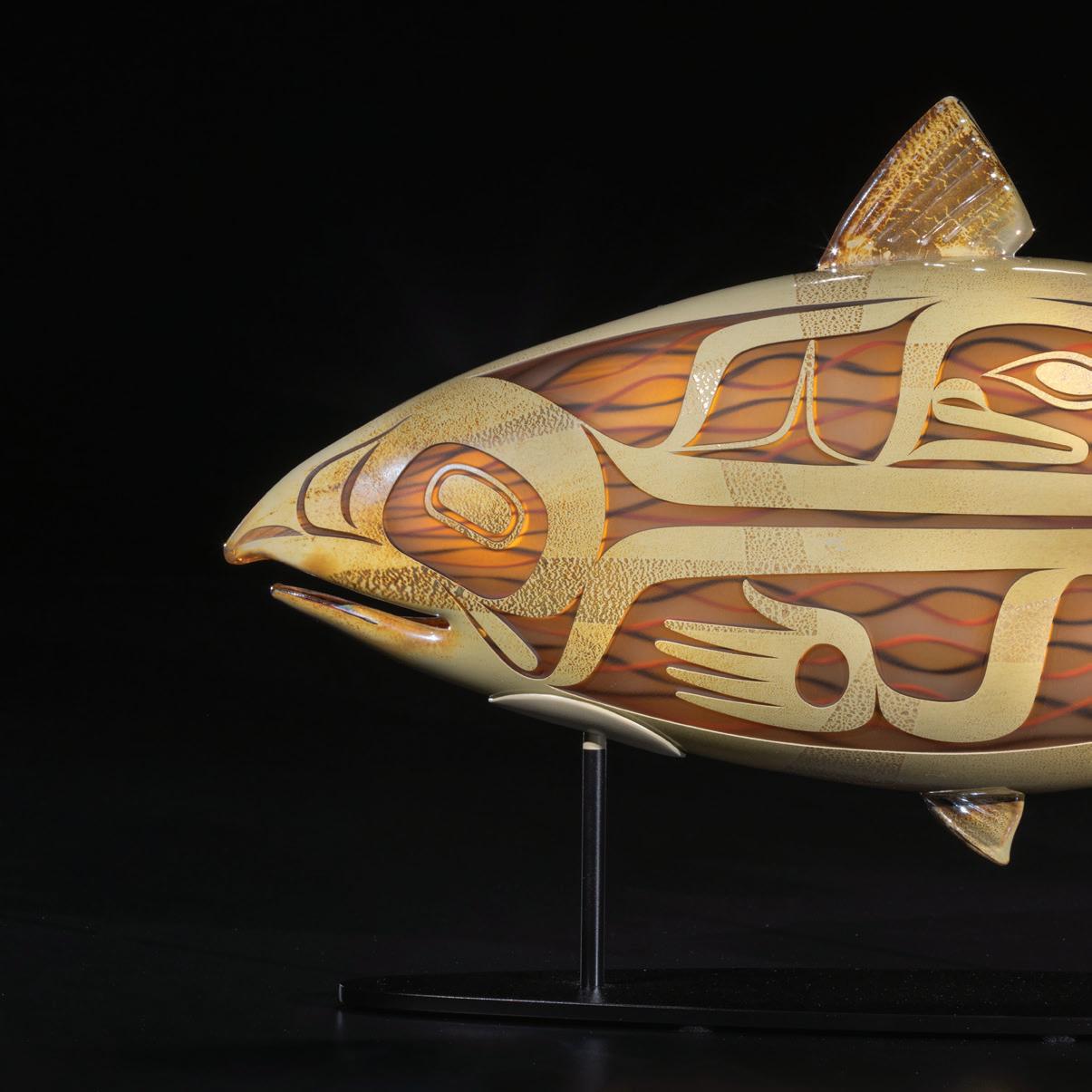
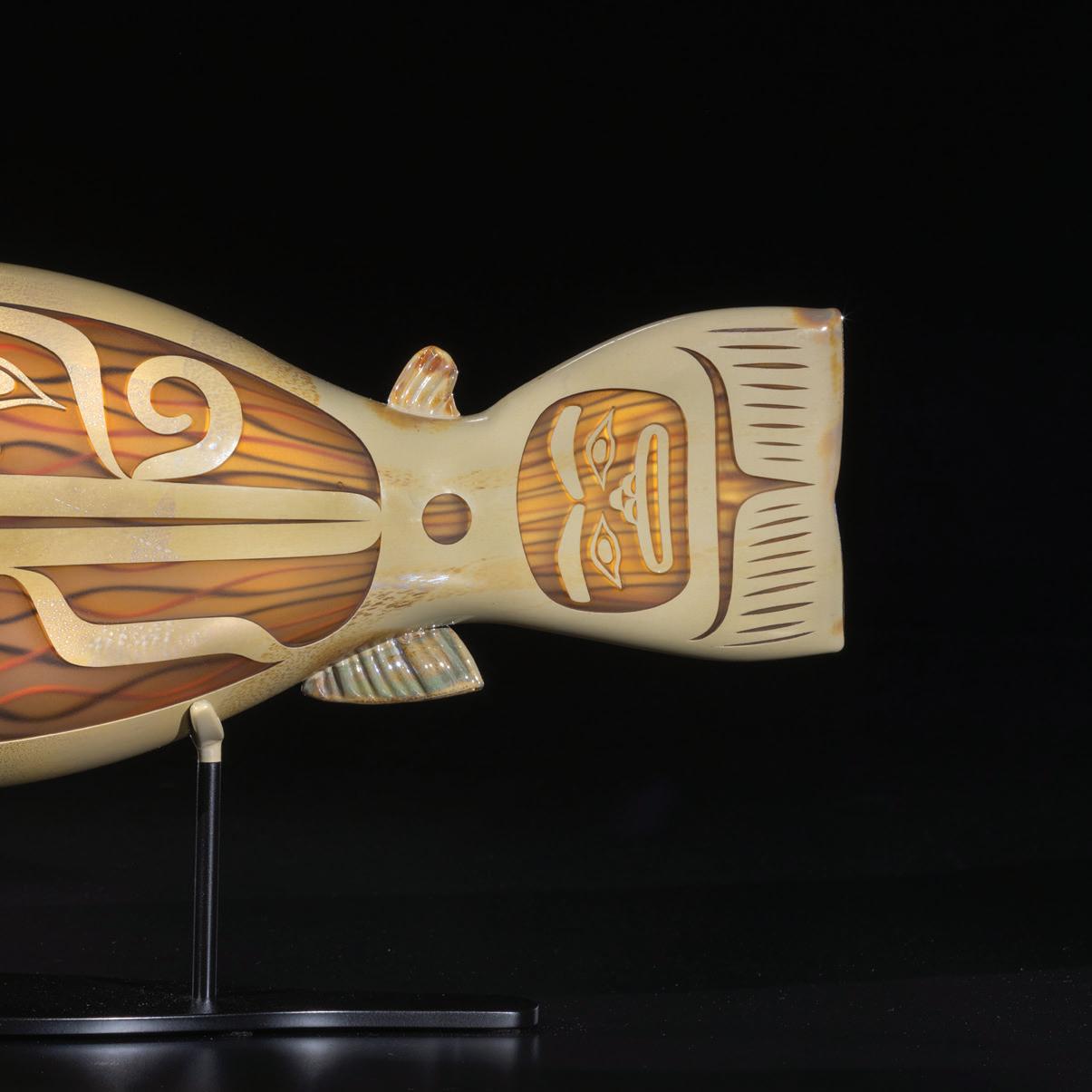
That’s two lifetimes of fish in only one lifetime. I’d say that’s a lot of fish!”
“Anytime I want a fish, I can come and get a fish? And if I want two, I can get two.”
“Ad infinitum!”
“And in return, I merely have to acquiesce to your operation’s operation?”
“And also, Sir Raven ... this is awkward ... your soul. You’ll have to turn that over as well, and then ... bask in the bounty of enough fish for two lifetimes!”
Raven considered the situation at length.
“Very well, sir,” Raven said. “But before I lend my name and soul to any commercial venture, I must sample the ahem goods!”
“I’m afraid we can’t allow that, King Raven,” said Captain. “Local pharmacological, astrological, and ecological laws prohibit the sampling of goods.”
“How, then, will I make my decision on whether or not to support this operation?”
“I would suggest a leap of faith.”
Raven scratched his chin at length. It didn’t seem quite like a fair transaction — his soul for an untasted and untested source of food. He recalled the famous Soylent Green fiasco of the 1970s! He glanced around at the giant floating ring in the water and the teeming little Salmon swimming frantically in the enclosure.
“How do you keep them inside?” Raven asked.
“We use a very strict system of benign neglect,” said Captain. “We don’t mind if some, many, or all of them escape because of faulty netting or our negligence. Once they escape these feeble nets, the FDA will have to give us approval because there will be no more natural salmon left!”
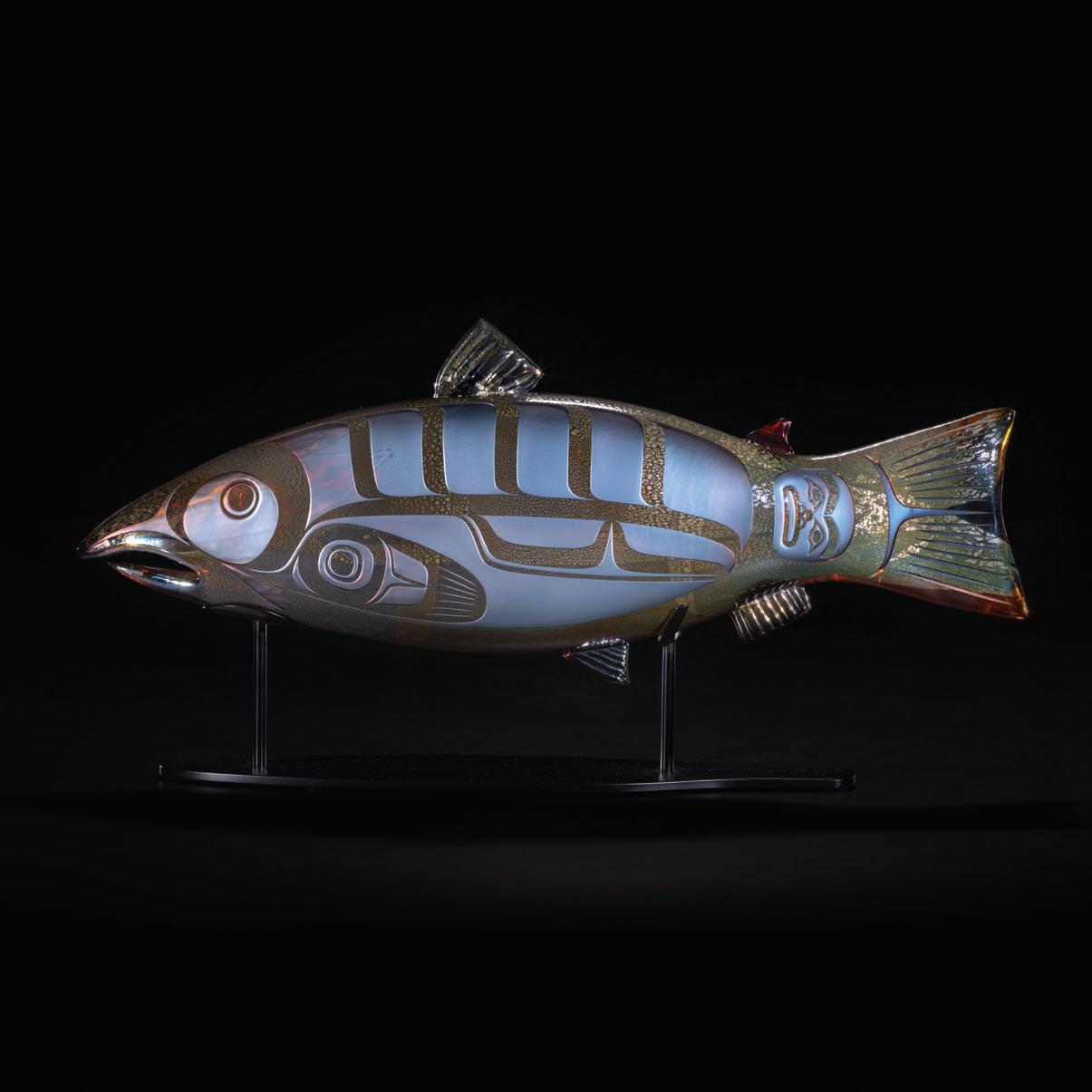
King Raven Brand™
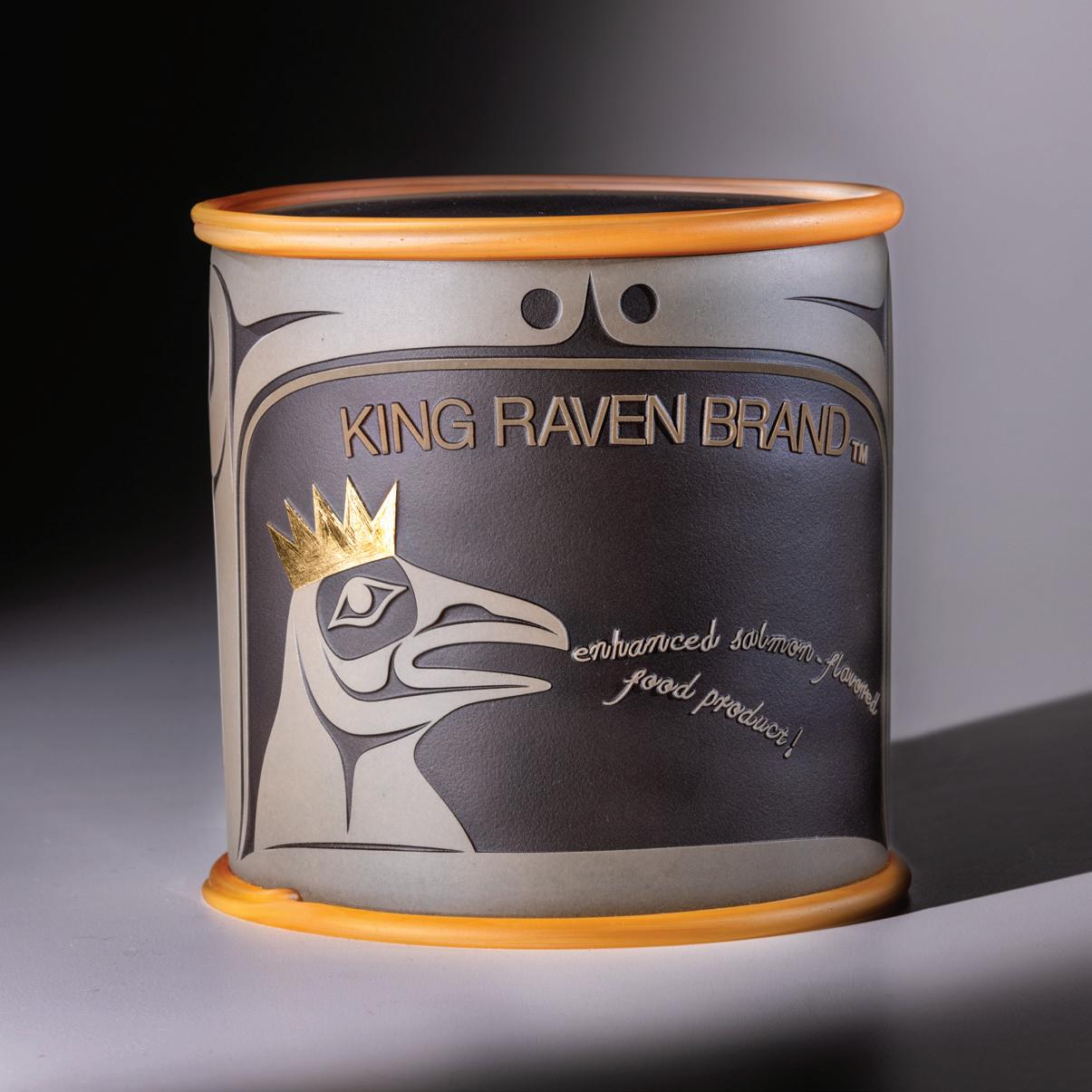
“Very clever,” said Raven. “Nearly devious. And what do you call these Salmon?”
“We call them King Raven Brand Enhanced Salmon-Flavored Food Product™!” Captain exclaimed. He showed Raven a box with the logo on the side — Raven, wearing a crown, with a small pink salmon in his talons.
“I like it,” said Raven. “But the salmon should be more robust, no? This one looks more like an anchovy.”
Captain considered the question when Raven suddenly squawked.
“Look!” cried Raven. “A crate of bananas!”
Captain looked, and surely, he saw a crate of bananas floating by, though this was a distraction and an optical illusion employed by Raven to distract the captain. With Captain distracted, it was easy for Raven to steal one of the sickly pink salmon from the enclosure and fly off.
“I must sample the goods before I proffer my soul,” said Raven. He swallowed the fish in one gulp and considered the flavor, the texture, the dining experience.
“Barf,” he said.
“Barf?” asked Captain.
“It is mushy and has no flavor,” said Raven. “And it isn’t even red.”
“Red is a color not a flavor,” Captain explained. “And anyway, we use spray paint to enhance the color, flavor enhancers to enhance the flavor, and texture enhancers for the texture. People don’t really pay attention to what they shove in their pieholes. Have you already forgotten the Soylent Fiasco of 1973?”
“I was just remembering that Fiasco,” said Raven. “People will eat anything.”
“We’ve been lowering the expectations of People for years,” said Captain. “With the right marketing campaign, you can get them to eat anything. ‘Chicken you can smear on toast! Yum!’ They have no idea how smeary chicken is made!”
“But why can’t you simply use real salmon?” asked Raven. “You wouldn’t have to enhance a thing.”
“Ah,” said Fisherman. “You don’t understand the basic laws of socioeconomics. We can’t patent what you call ‘real salmon,’ if by ‘real’ you mean ‘free-range,’ but we CAN patent King Raven Brand Enhanced Salmon-Flavored Food Product™! Once we get it to market, we won’t need your real salmon at all. We can stop up the rivers for real, then! And we will have all the money!”
Raven didn’t like the direction the conversation was taking.
“I am King Raven,” he said, “and I disapprove of this product!”
“Brilliant!” Captain exclaimed. “It’ll look great on a T-shirt! Thank you, Raven. You have once again proven yourself an entrepreneur non pareil! And even if this plan fails, you’ll get a good story out of it.”
Raven was stymied by that one and had to look up non pareil. He also wondered how good of a story it would make. Certainly not as good as the Old Stories.
“Make sure those nets don’t develop any holes or anything,” he warned as he flew away. “I don’t want those sickly little apricot-colored modified anchovies mingling with my delightful friends, the real and true Salmon.”
“Too late!” cried Captain. “Brilliant! King Raven Enhanced Salmon are already out there! Elon Musk has purchased the technology to feed astronauts on their way to Mars! We no longer need wildlife!”
“Oy,” said Raven. “It may be time for a new flood!”
And off he flew, wondering if he still had the power to conjure a flood of epic proportions. Maybe there was a pill he could take. Either way, the inevitable conclusion that Man is his own worst enemy was getting more and more, you know, inevitable.
“We made People too clever,” he said to himself.
“They’re pretty low functioning,” he replied with a disapproving scowl.
“They found the loophole,” Raven pointed out tersely.
“The loophole! The loophole!” he cawed.
“Yes,” Raven said to himself. “People can’t make something out of nothing. They can only change what’s already there. Naturally, we thought, how much damage could they do? You must remember those conversations; you were in those meetings. And then one of them learned how to crack open the atom "
“I literally never thought they would figure that out ”
“And all hell broke loose!”
“Clever bastards!” Raven exclaimed. “And now?”
“They’ll tear the place apart!” Raven cried. “They’re like babies with chain saws! We can’t trust them. We can’t kill them. There’s only one choice ...”
“Abandon them!” Raven cried severally.
He cackled to himself. That’s pretty good ... abandon them! ...
Heh.
Actually, he thought. It wasn’t a bad idea.
Now Raven had abandoned People before, if you equivalate going to sleep with abandoning the wakeful dimension. It is true that when you sleep, you are allowing your consciousness to opt out of the wakeful dimension in favor of a dream dimension. You are still you; however, your consciousness is not confined to your body but allowed to roam freely. You can say, “I didn’t mean to abandon you when I went to sleep,” but abandonment is still evident. In other words, a thing is done irrespective of intentionality. Intention merely serves to pin the tail on the donkey, as it were, or levy the blame. When Raven slept for years, decades, centuries? How long had it been? When he went to sleep, he certainly had turned his back on the world. He had definitely opted for a different dimension, one in which he could not hear the anguished cries of people in need, of people hurting people. And anyway, he came back, so redemption is always a part of the equation.
A part of Raven loved People so much. And part of Raven detested People’s sniveling selfishness and lack of self-awareness. Yuck. To think he’d created these simpering whippets. He should have used stone. Raven’s great regret, making People out of leaves. If he had used stone as he’d first conceived, the world would be a much better place because people wouldn’t worry about dying all the time.
“Honestly, the leaves seemed like a good idea at the time,” Raven said. “The peaks and valleys of existence ... Very poetic!”
“How could we have known it would go so wrong?” he replied to himself.
“It’s a pretty significant blunder, I’d say,” Raven noted pointedly.
“No regrets,” he squawked. “No regrets!”
Yes, Raven could abandon People once again. He could do it again. Heh.
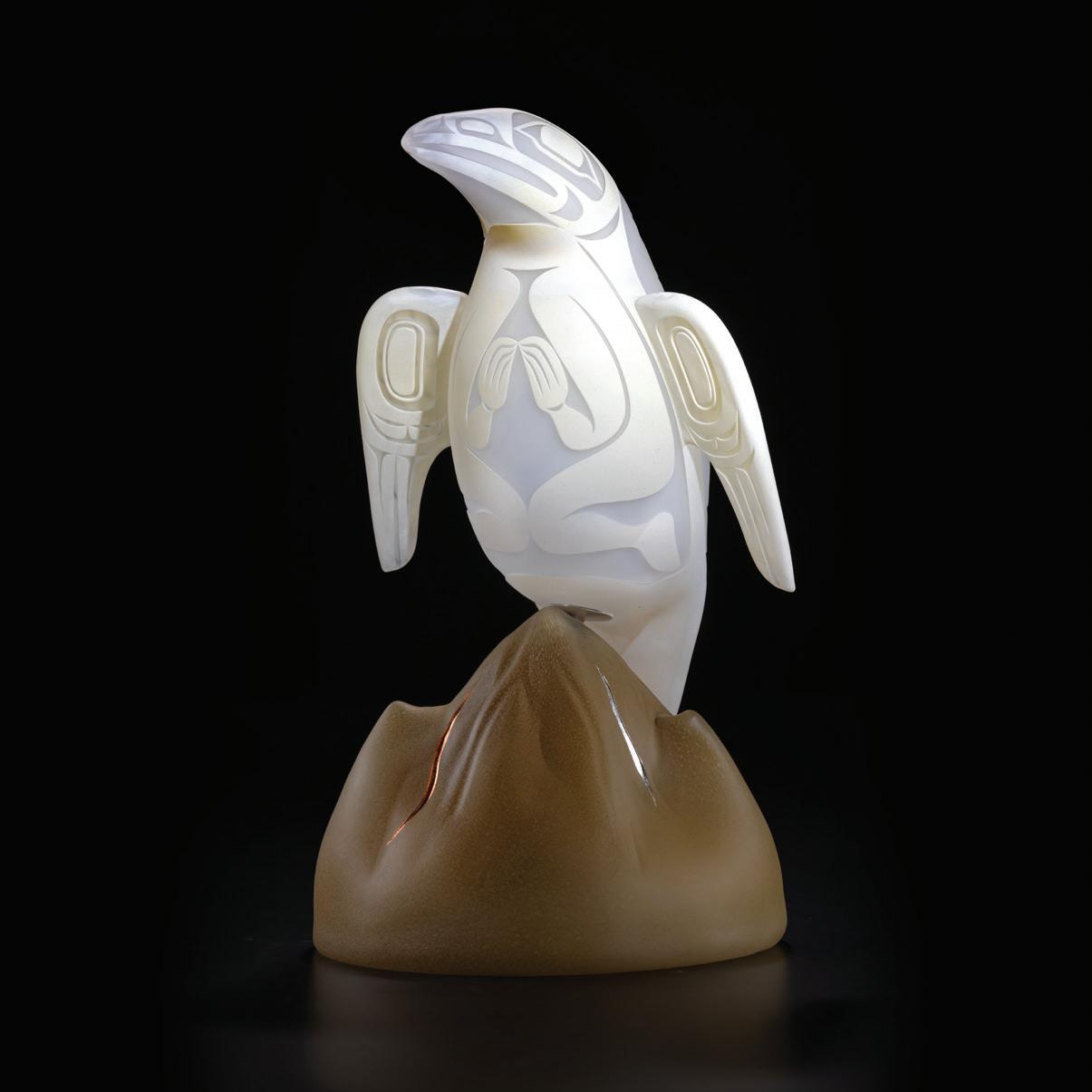

Ways
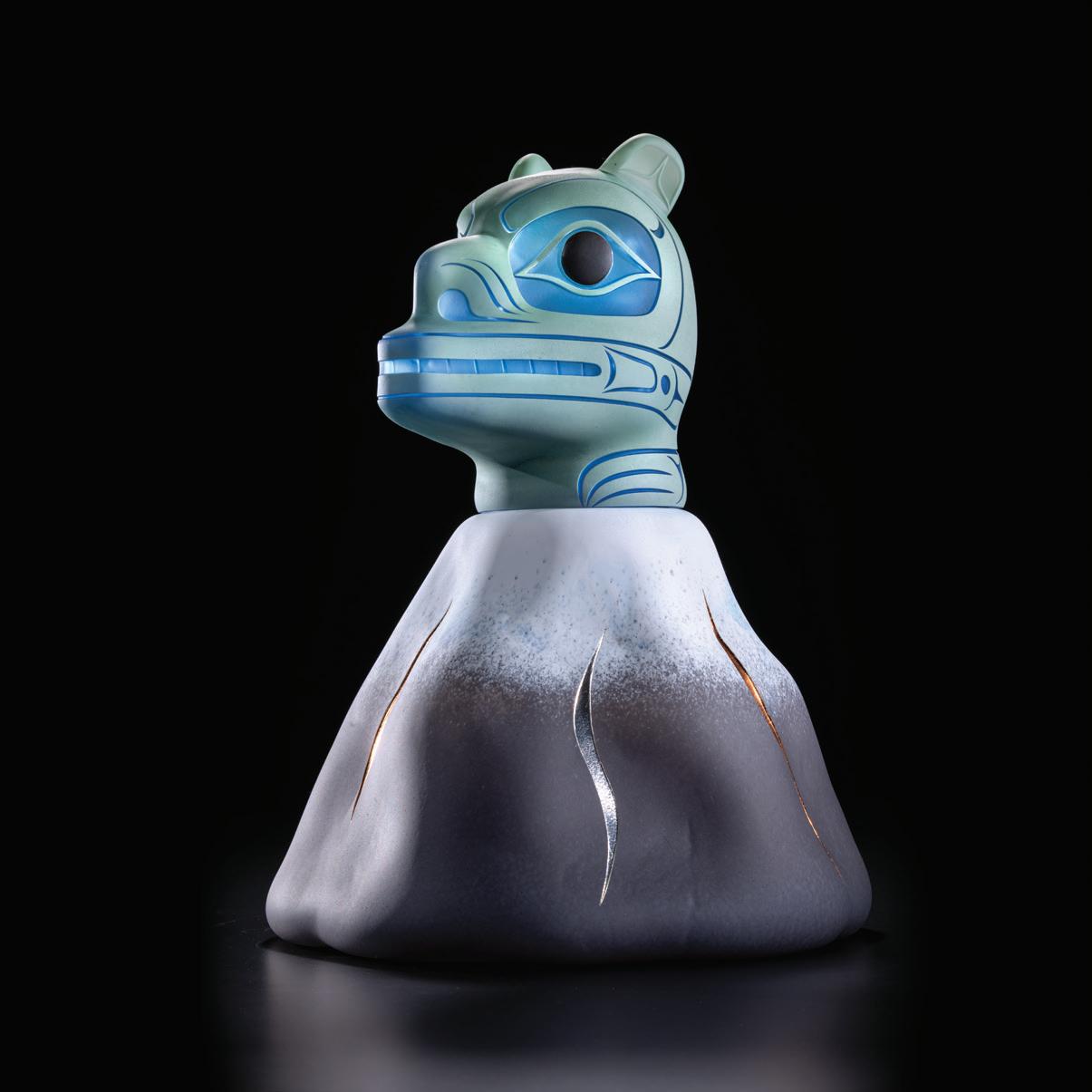
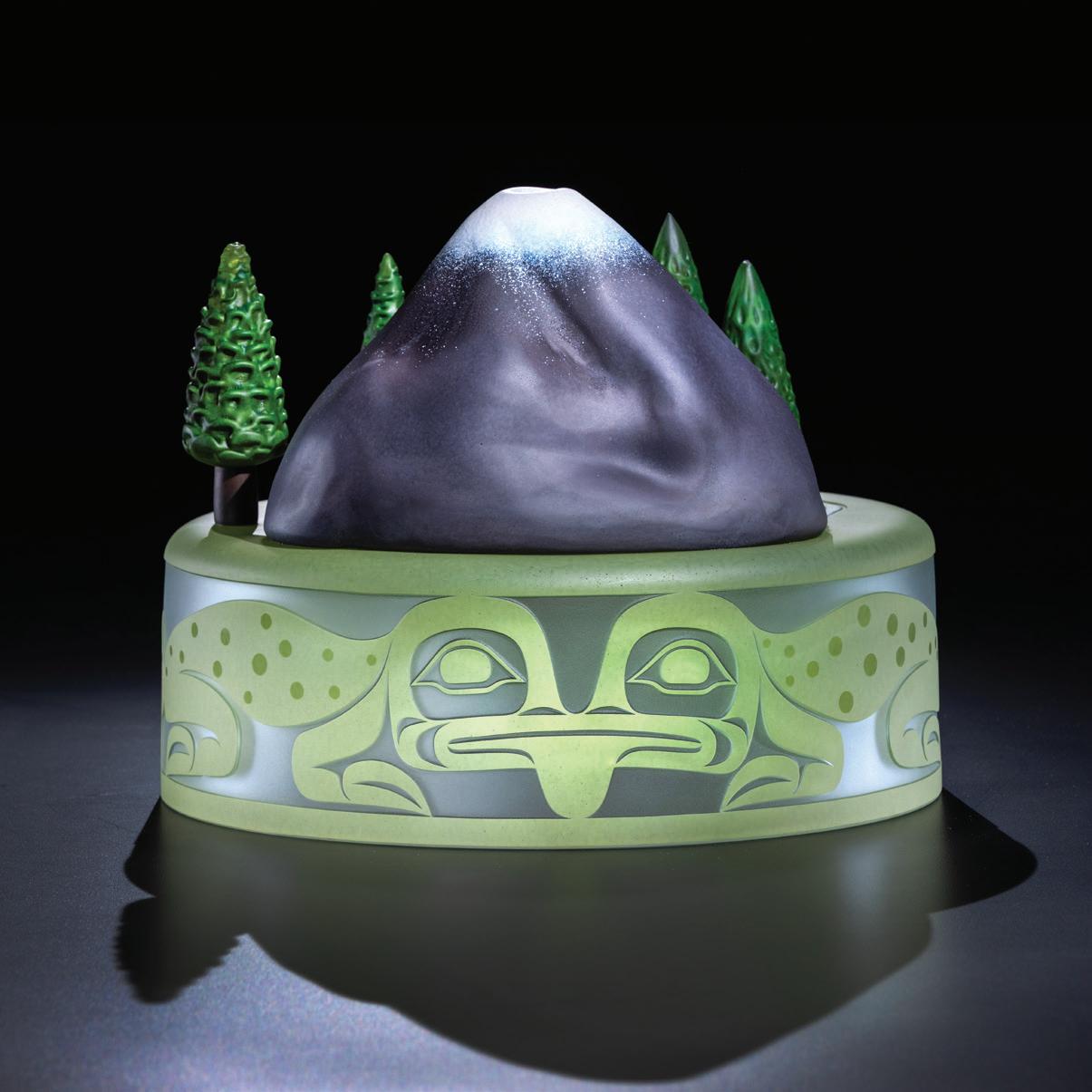
And yet, as he flew away from this World to let the People stew in their own wretchedness, he had second thoughts. Perhaps it was the thinness of the air, so high had he flown. Perhaps it was the paleness of the blue sky, or the brightness of the sun, or the patterns of the rivers and mountains and oceans he could see below him ... we will never know the cause of Raven’s actions; some say, neither will he. But something stopped Raven that afternoon, as he alit upon a mountain top, the moon so close he could touch it. In the dawn-dusk he felt the prickle of the stars on his feathers and he stretch-yawned and cracked his neck.
“I do love this world, though,” he said to himself.
And he heard a reply which wasn’t him. The reply said: “It is a fine world.”
Raven saw Mountain Goat then, Zen-like and regal with his beard so long, sitting atop the mountain.
“But it is a world full of chaos,” said Raven.
“Chaos is as chaos does,” said Mountain Goat.
“I don’t think you’re using that right,” Raven said. “But it’s easy for you up here, far above the ignorant armies clashing by night down there.”
“We all have our troubles, Raven,” said Mountain Goat.
“What kind of troubles could you have up here in your Mountain Kingdom, friend Mountain Goat?” Raven asked.
“Raven!” Mountain Goat bleated. “Let me tell you a story ...”
And Mountain Goat began to tell his story, which went like this:
There is a bay, far north of here. It is a long bay, like a crooked finger, and so narrow that it takes a day to paddle the length of it. It is here where the mountains cut into the earth like a clever, and the bay slices deep into the crust where it is very cold and dark beneath the water. And in this cold darkness lives he King of the Frogs
“Excuse me,” Raven interrupted. “King of the Frogs? There are so many kinds of frogs. He’s the king of all of them? There’s one king for all Frogdom?”
“Yes,” Mountain Goat said, “One king for all Frogdom.”
“Are Toads included in Frogdom?” asked Raven.
“Not Toads.”
“Ah,” said Raven. “There is some order in the world.”
Mountain Goat continued his story:
The King of the Frogs the King of All Frogs! lives deep in a cavern at the bottom of this bay, and if anyone disturbs him by paddling a canoe on the surface, he will charge from his lair with great anger and shake the earth until every tree and building falls to the ground and a wave comes to wash it all away. And if the Frog King were to find the intruder, he would turn that person into a bear. Heh.
“That’s it?” asked Raven.
“That’s it,” said Mountain Goat.
“It’s not much of a story,” said Raven. “A character study at best. And even then, it’s a little thin. Is it meant to be a cautionary tale: don’t go to that bay? Or is it an origin story: this is where Earthquakes come from? Because if it’s the latter, I can tell you, I am not buying the story of a grumpy frog who shakes the earth at every passing jet ski.”
“Our mountains are hollow shells of their former selves,” Mountain Goat said. “The People came and hollowed out our mountains. First, they took the gold, then they took the silver, then they took the uranium and the copper, one by one, they take things of value leave nothing in return. Our beloved mountains are insubstantial. They are hollow!”
Raven considered Mountain Goat’s complaint.
“The Matterhorn at Disneyland is hollow,” Raven said. “It makes for a very cool ride. Also, Everest Adventure has a hollow mountain, but that’s at Disneyworld, which is harder to get to because it’s in Orlando.”
“Hallow hollow!” crooned Mountain Goat.
“If you were to build a roller coaster through the mountains ...” Raven mused. “I think you should look at it as an opportunity, is what I’m saying.”
“Oh, Raven!” cried Mountain Goat.
“Jesus puts great value on perseverance,” said Raven. “Remember when they lowered the paralyzed guy through the skylight? Jesus took note of the effort! That guy walked home, is what I’m saying.”
“The Hollow Mountains will collapse when the Frog King shakes the world,” said Mountain Goat.
Raven stopped talking for a moment. He stopped thinking, too, for his mind was already creating a roller coaster design in his head.
“I glean,” Raven said. “Your mountains are not seismically retrofit.”
“Indeed,” acknowledged Mountain Goat.
“Well, then,” warned Raven, “you’d best make sure no kayaker paddles into that long bay of yours. One earthquake and these mountains are Patagonia-flat!”
“That is the fear,” agreed Mountain Goat.
“I see,” said Raven. “So you told me a story that has everything to do with your problems and nothing to do with mine.”
“Like a rising tide, a catastrophic earthquake affects all things,” said Mountain goat.
“Traditionally,” Raven began, “when someone consults the wise spirit of a Mountain Goat on an interdimensional mountaintop, the story told by the wise old goat has some revelatory aspect that is pertinent to the consultee, not the consultor.”
“It’s really more the luck of the draw,” said Mountain Goat.
“The term ‘Tradition’ suggests repetition to the point of predictability,” Raven said. “Otherwise, it wouldn’t be a Tradition. It would be an Occurrence. Or worse! A Random Occurrence!”
“Oh, ho!” chuckled Mountain Goat. “There’s no such thing as a Random Occurrence! Every Effect has a Cause!”
“That’s what I’ve been saying,” said Raven.
“Well, tell me then, friend Raven,” said Mountain Goat. “What is the Cause of that!”
Mountain Goat pointed over Raven’s shoulder to a resplendent golden bird hovering in the sky over the mountain. With each stroke of the great bird’s wings, the sky cracked with a deafening explosion.
“I am Thunderbird!” bellowed Thunderbird.
How odd, thought Raven. Thunderbird wasn’t there a moment ago.
“You are looking especially radiant this evening, Thunderbird,” said Raven.
“I am Radiant Thunderbird!” Thunderbird blared.
“Tell me, Thunderbird,” said Raven. “Aside from telling people you are Thunderbird and looking radiant, do you actually do anything?”
Thunderbird looked astonished. And then he looked hurt.
“When I flap my wings, thunder shakes the sky!” Thunderbird proclaimed. “I am Thun ”
“Yes, yes,” said Raven. “You are Thunderbird. I’m just wondering, I hear thunder maybe five or six times a year. Eight, if I’m being generous. What do you do with the rest of your time? Time must be lonely, sitting there watching you do nothing.”
Thunderbird was earnestly confused.
“Time is watching me?” he asked doubtfully.
“Always,” said Raven, not sure what he had triggered in his radiant friend, but clearly, he
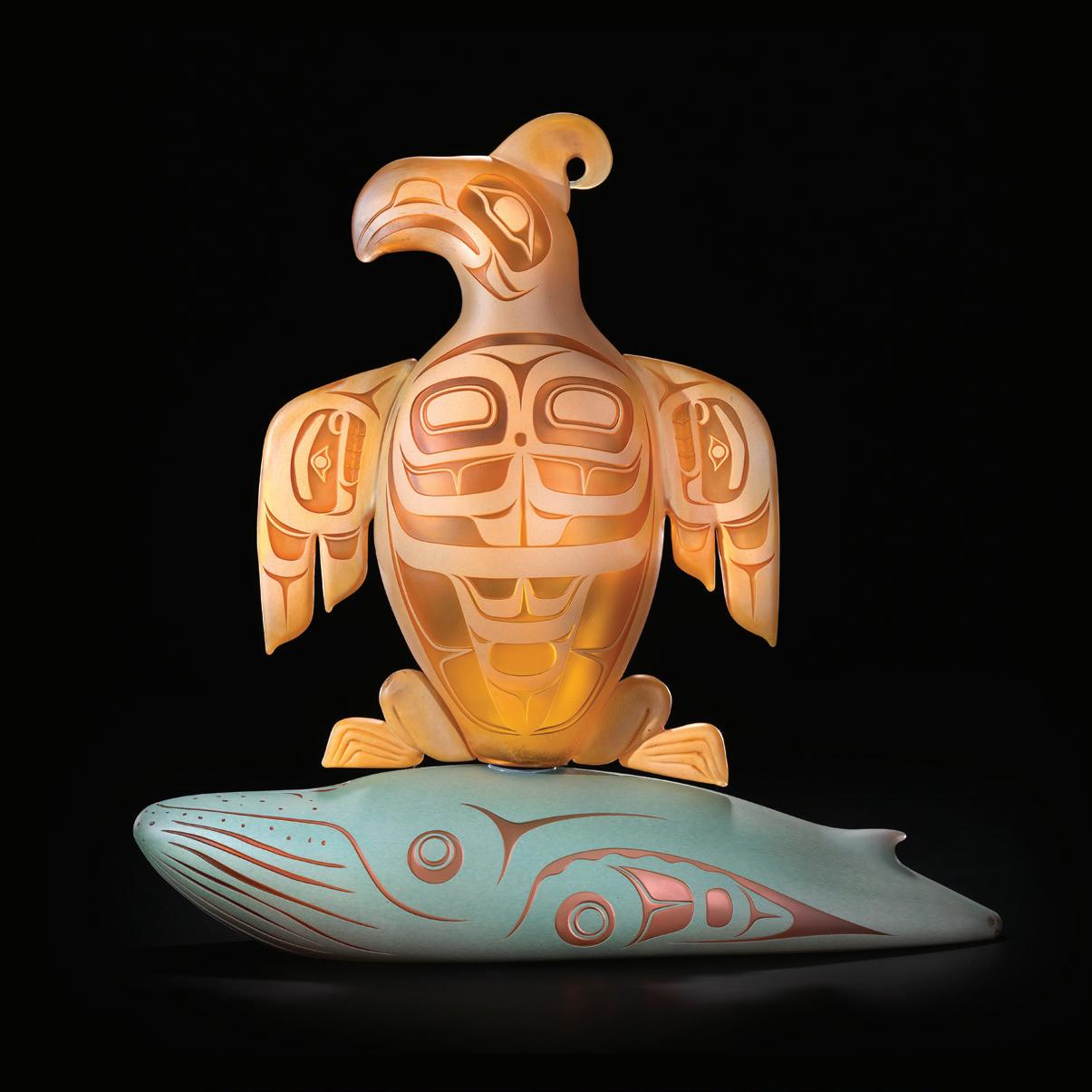
Thunderbeing
Blown and sand-carved glass 25" h x 27" w x 7" d
had stumbled upon a metaphorical splinter in Thunderbird’s metaphorical paw. “The Time you spill on the floor so carelessly, like it has no value. That Time is watching you right now. Time witnesses you!”
Thunderbird watched Raven raptly, and when Raven had finished, Thunderbird shivered involuntarily. His shiver sent a peal of thunder crashing through the sky.
“I do not like being watched by Time that has been spilled on the floor,” said Thunderbird.
“Ah, then you should use Time more wisely!” Raven cried. “Rather than buffing your radiance between thundering duties, join forces with me and we will fix the world together!”
Thunderbird looked at Raven for a long time, his face grave with thought, or lack thereof, Raven wasn’t sure. “How?” he said.
“We’re going to run you for office,” Raven said. “We’ll get you on the ballot for 2028. You’re perfect presidential material! You’re buff, you’re radiant, you have a deep voice. You control the Thunder. I mean, that alone guarantees you 51% of the vote.”
“I don’t think they would let me be president,” said Thunderbird.
“Just be yourself and they’ll love you,” said Raven. “Let’s practice. I’ll be a reporter, you be you. Okay ... scene! President Thunderbird, President Thunderbird! What are your thoughts on the economy?”
Thunderbird appeared startled, and then not knowing what to say, flapped his wings, causing a sharp cracking of thunder and said, “I am Thunderbird.”
“Perfect,” Raven said. “Brilliant. Uh, Mr. President, what’s your view on the immigration problem?”
Thunderbird chuckled and the sky rumbled deeply.
“I am Thunderbird!”
“Exactly! You’re perfect. You’ll definitely win. It will be a puppet government, of course. You’ll be the puppet and I’ll be the puppet master. And then we will take over their world from the inside, and we will teach them!”
“What will we teach them, Raven?” Thunderbird wailed.
“How to unbreak an egg!” cried Raven.
Thunderbird began to cheer, and the thunder rolled over the horizon, but then he stopped.
“What?” Thunderbird asked.
“The physicality of our world is a boundary to us only if our will is weak,” said Raven.
“What, what?” said Thunderbird.
“Never mind,” said Raven. “We should get started right away. I want you to fly up to the top of the sky and let everyone know that Thunderbird is in the house. Let ’em have it. Everything you’ve got. Leave nothing on the field. Full thunder, rain, kitchen sink. And make sure everyone can hear you! Project to the back of the theater! We want to let them know the Big Dog is in the hoooouse!”
With these instructions, Thunderbird flew high into the air, so high! And he flapped his wings so mightily, so loud! And he rained his terrible rains, and he shone with all his brilliance, and he declared in a voice so loud that it shook the windows in the houses, and made the dogs howl in pain and the water ripple in its glass, he proclaimed to the entire world, which cowered in fear and awe before his magnificence: “I AM THUNDERBIRD!”
Cue: All Hail the Chief.
And ... scene.
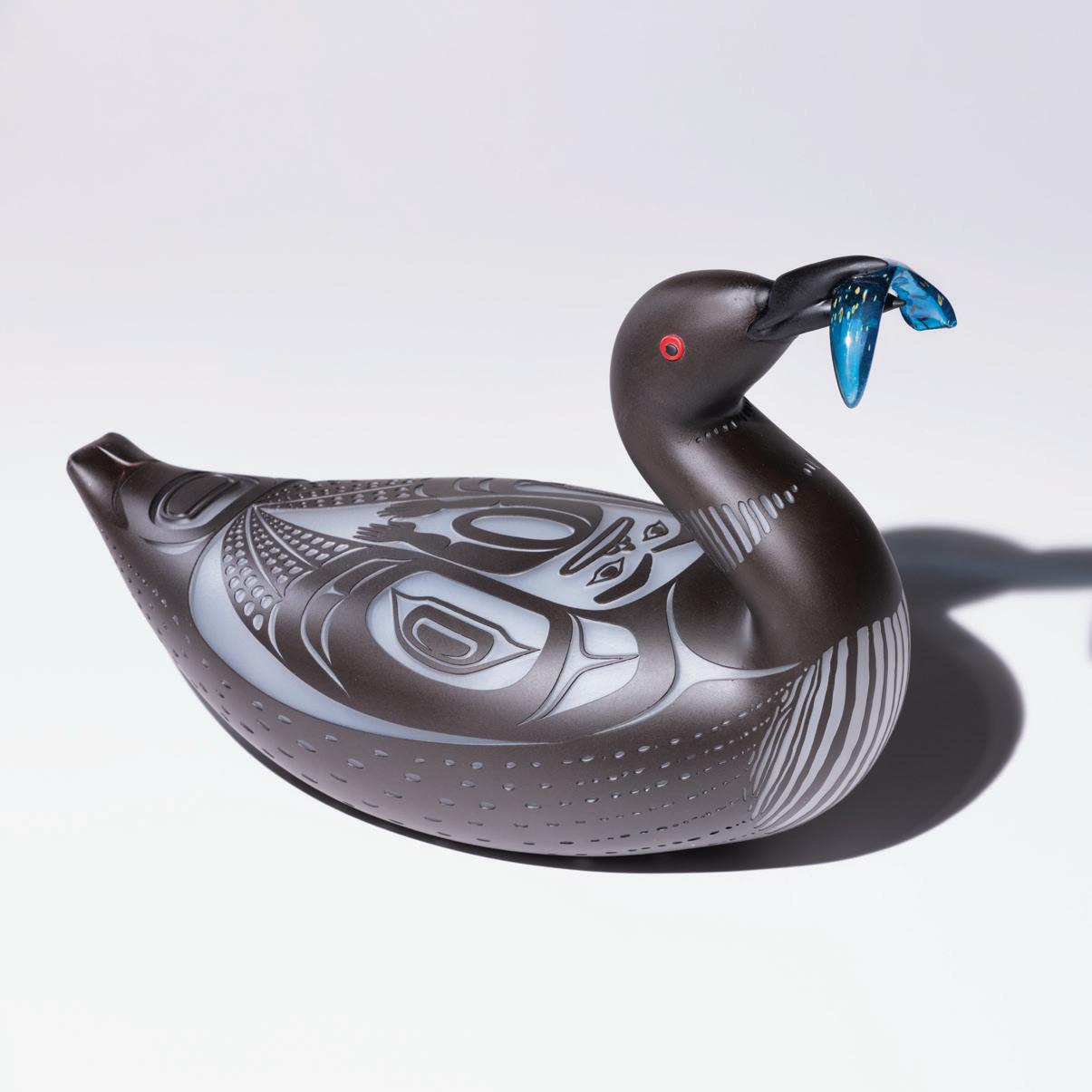
EPILOGUE
Raven felt dazed and a bit confused, which he’d grown to accept as his new “resting” state. For there are answers and there are questions, and there are solutions and there are problems, and very often these disparate things do not sort neatly into piles, and so one is forced to improvise. Raven sat by a small lake whose waters were so clear and still, he could see straight to the bottom. As he gazed into the water, he heard the spooky laugh of a loon as it sailed by. “I am no danger to you, Loon,” said Raven, because he knew the loon giggle betrayed loon nerves. Upon hearing this, Loon changed its call to a cheerful yodel and sailed up to Raven.
“Friend, Raven!” Loon hooted. “I see it is you! No need for me to fear Friend Raven, for I am not a clam!”
Loon laughed at his own joke until his wavering call bounced off the nearby mountains.
“You didn’t get that?” Loon asked, noting Raven’s daze and confusion. “Because you love to eat clams.”
“I got it,” said Raven.
“And yet you’re not ...” said Loon. “Laughing. Which is fine. I can tell you have a lot on your mind. Things around here have been very curious. Curious and exciting! I’m going to tell you about it, which will lift the darkness from your shoulders. Do you like my necklace?”
Here, Loon swam a little circle to express some of his excitement.
“It’s new! And we all have them now! All of us have new, pretty necklaces. What do you think?”
Loon preened; Raven looked.
“Lovely,” said Raven.
“Ah, yes, Raven is very dark,” said Loon. “The darkness is upon Raven and his sarcasm is bitter. I’ll tell you how I got it anyway. Do you know that Shaman from over there? I think you know him!”
“I know him,” said Raven.
“After you saw him, you began to see things differently, did you not?” asked Loon.
“It is true, pretty bird,” said Raven. “And now I must warn you that your mention of clams for lunch has hit home with me, for I am powerfully hungry and I also happen to have a good recipe for squab under glass, substitutions allowed.”
Loon gulped.
“It’s bad luck to eat the entertainment!” wailed Loon. “That shaman over there was blind when I met him! Blind as a bat. Blind as a tree!”
“Indeed?” questioned Raven.
“It is true! It is true!” confirmed Loon. “I took him for a ride on the lake, he climbed on my back, and I took him for a sail, and then I saw a fish in the clear water, and I was feeling a little hungry — a feeling you know so well! — so I decided to catch that fish. I told the Shaman to hold on, and I dove!”
“An anchovy?” asked Raven. “A sardine? Was it packed in oil?”
“I didn’t catch that fish,” continued Loon. “It’s harder to dive with a Shaman on your back than you think! And I got a little fixated on the fish. I think you know of what I speak, Friend Raven. And I dove and I dove for that fish, but I never did catch him. Yet each time I breached, I heard that old Shaman cackle with glee and cry out, ‘I can see! I can see!’”
“He could see?” asked Raven.
“He could!” Loon cried. “Seven times, I dove. Seven times his eyes were washed. And after the seventh washing, that Shaman could see as clear as day! And he was so happy, he gave me this necklace. Isn’t it pretty? And not just me, but all of us! He gave us all one of these necklaces. Every Loon gets one, he said! They’re very pretty! Don’t you think they’re pretty?”
“Bananas,” said Raven.
“Bananas? Bananas? You think I’m bananas?” Loon wailed with a giggling waver at the end of his call. “Bananas? He can see! That Shaman. Could he not see before? And can he see now? And you call me bananas?”
“Not you,” said Raven, trying to placate the agitated bird. “The world is bananas. I was saying, this world sure is a bananas place!”
“The world? The world is bananas?” Loon repeated with his bananas laugh. Raven could see Loon was working himself into a state. “The world? The World? The World is bananas?” Loon repeated over and over. He swam in a circle and then took flight, calling to the others, to the mountains, that the world had gone bananas.
“You can always tell a Loon,” Raven said, as he watched Loon fly for the hills. “But you can’t tell him much.”
Heh.

